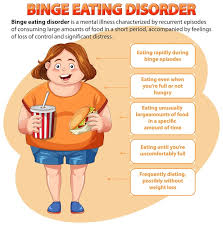24 Sep, 2024 | Muhammad Aleem | 11 Comments
“Digital Obesity Care: Your Path to a Balanced Online Life”

Navigating the Path to Healthier Living
Digital obesity care has emerged as a transformative approach in the management and prevention of obesity. With the increasing prevalence of obesity worldwide, characterized by excessive body fat that poses health risks, innovative digital health solutions are gaining traction. This article explores the concept of digital obesity care, its components, benefits, challenges, and practical dietary recommendations.
Definition and Scope
Digital obesity care encompasses a range of technologies and tools designed to assist individuals in managing their weight and improving their overall health through digital platforms. This includes mobile applications, wearable devices, telehealth services, and online support communities that provide education, motivation, and actionable insights to users.
Importance of DigitalObesity Care
The obesity epidemic presents significant public health challenges, including increased risks of chronic diseases such as diabetes, cardiovascular disease, and certain cancers. Digital obesity care offers innovative solutions by:
- Enhancing Accessibility:
Providing easy access to resources and support for individuals who may face barriers in traditional healthcare settings. - Promoting Engagement:
Utilizing technology to engage users in their health journey, leading to better adherence to dietary and physical activity recommendations. - Facilitating Personalization:
Allowing for tailored interventions based on individual preferences, lifestyles, and specific health needs.
Components of Digital Obesity Care
1. Mobile Applications
Mobile apps designed for weight management can help users track their food intake, exercise, and progress over time. Many apps offer features such as barcode scanners for food items, meal planning tools, and personalized calorie goals
based on individual metrics.
2. Wearable Devices
Wearable technology, such as fitness trackers and smartwatches, enables users to monitor their physical activity, heart rate, and even sleep patterns. These devices often sync with mobile applications to provide comprehensive insights into daily habits.
3. Telehealth Services
Telehealth platforms allow users to connect with healthcare professionals remotely, facilitating consultations, coaching, and counseling. This approach can be especially beneficial for individuals who may not have access to in-person
healthcare or prefer the convenience of virtual appointments.
4. Online Communities and Support Groups
Digital platforms often include forums and social networks where individuals can share their experiences, seek advice, and provide encouragement to one another. Social support plays a crucial role in maintaining motivation and accountability in weight management efforts.
Benefits of Digital Obesity Care
Accessibility and Convenience
Digital obesity care offers unparalleled convenience, allowing individuals to access resources and support from the comfort of their homes. This flexibility can encourage more people to seek help for their weight management challenges.
Data-Driven Insights
With the integration of technology, individuals can track their dietary habits, activity levels, and weight changes over time. This data can be invaluable for understanding patterns and making informed decisions about lifestyle changes.
Enhanced Motivation
Many digital platforms incorporate gamification strategies, such as rewards and challenges, to keep users engaged and motivated. The social aspect of online communities can also foster a sense of belonging and support.
Challenges in Digital Obesity Care
Digital Literacy
Not all individuals are equally comfortable with technology. Some may struggle with using digital tools effectively, which can limit the potential benefits of digital obesity care.
Privacy Concerns
The collection of personal health data raises concerns about privacy and security. Individuals must be aware of their rights and ensure they use secure platforms to protect their information.
Inconsistent Quality of Resources
Not all digital tools are created equal. It is essential to assess the credibility and effectiveness of apps and programs, as some may not deliver accurate information or results.
Dietary Recommendations for Weight Management
While digital obesity care plays a significant role in managing weight, dietary choices remain a fundamental aspect of success. Here are key dietary recommendations:
Key Components of a Healthy Diet
- Fruits and Vegetables:
Aim for at least five servings per day. These foods are nutrient-dense and low in calories, making them perfect for weight management. - Whole Grains:
Incorporate whole grains like brown rice, quinoa, and whole-wheat products. They provide essential fiber, which helps in maintaining satiety. - Lean Proteins:
Include sources of lean proteins, such as chicken, fish, beans, and legumes. Proteins are essential for muscle maintenance and can help keep you feeling full longer. - Healthy Fats:
Opt for unsaturated fats from sources like avocados, nuts, seeds, and olive oil. These fats are beneficial for overall health and can help control hunger. - Limit Processed Foods:
Reduce intake of sugar-sweetened beverages, snacks high in sugar or refined carbs, and highly processed foods. Instead, focus on whole, minimally processed options.Sample Meal Plan for Weight Management
To illustrate a balanced diet conducive to weight management, consider the following sample meal plan:
- Breakfast:
Greek yogurt topped with mixed berries and a sprinkle of chia seeds. - Morning Snack:
A handful of baby carrots with hummus. - Afternoon Snack:
An apple with almond butter. - Dinner:
Baked cod with quinoa and steamed broccoli. - Dessert:
A piece of dark chocolate (moderation is key).
Authentic Health Sources
For verified information and resources on obesity and digital health interventions, consider the following reputable sources:
- Centers
for Disease Control and Prevention (CDC): Provides extensive resources on obesity prevention, management, and statistics. - National
Institutes of Health (NIH): Offers research and guidelines focused on obesity and related health conditions. - World
Health Organization (WHO): Supplies global insights and recommendations on managing obesity and promoting healthy lifestyles. - American
Heart Association (AHA): Offers educational materials on heart health, nutrition, and weight management.
Conclusion “Digital Obesity Care:
Digital obesity care represents a promising frontier in addressing the global obesity epidemic. By leveraging modern technology, individuals can access tailored resources and support to manage their weight effectively. Coupled with a
proactive approach to dietary choices, digital interventions can empower individuals on their path to healthier living. As the landscape of healthcare continues to evolve, embracing digital solutions can pave the way for a more
health-conscious society.
for chicken lovers: Best fried chicken recipe



Write Reviews
Leave a Comment
11 Comments & Reviews